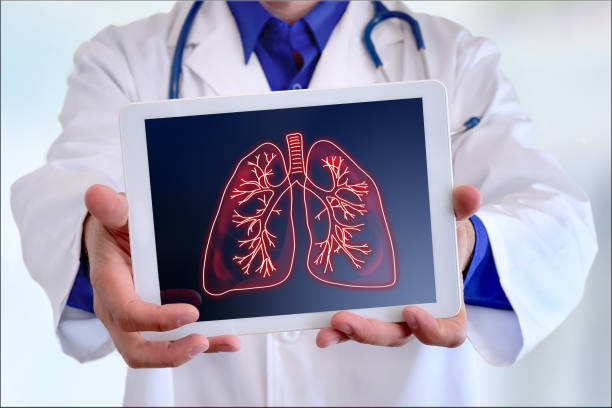
Chest pain is the 2nd most common reason to visit the emergency department. The primary cause of this can be anything from a simple muscle strain to a life-threatening cardiac event. Consulting a qualified pulmonologist in Delhi for chest pain is advised for an accurate diagnosis of the underlying cause.
Every case of chest pain is cautious. This is why understanding some common indications and symptoms is helpful. With proper understanding, you will be prepared for your visit to the best pulmonologist in Delhi.
This article will discuss the various causes, signs, and symptoms of chest pain so that you can better manage the condition when it arises. Let’s take a look!
What are the causes of chest pain?
Chest pain varies from – indigestion or costochondritis to angina and heart attack. Check out the causes of chest pain in detail –
1. Heart Attack: Chest pain due to a heart attack makes you feel a stabbing, persistent and intense pressure. It may also spread to the arms and neck.
2. Angina: This type of chest pain is usually less severe than heart attack pain, but one can feel it in the centre or left side of the chest. The pain may also radiate to the shoulder, arm, neck, back, or jaw.
3. Gastrointestinal Issues: Pain from gastrointestinal issues such as acid reflux or ulcers is a common cause of chest discomfort that radiates into other body parts, including arms, neck, or back.
4. Musculoskeletal: Chest pain from an injury around your ribs can make breathing hard. Costochondritis is the cartilage inflammation connecting your ribs to your breastbone, and any pain near that area can cause severe pain.
5. Pulmonary Embolism: This condition occurs due to a blood clot that blocks an artery in the lungs. Chest pain due to pulmonary embolism makes you feel a sharp, stabbing sensation, and it may be accompanied by shortness of breath or coughing up blood.
What are the indications and symptoms of chest pains?
The most common symptoms associated with chest pain are-
-
Intense pressure-like sensation from your chest to your arms
-
Shortness of breath
-
Dizziness
-
Nausea
-
Sweating
Some people may experience pain in their neck, back and upper abdomen and mistake it for chest-related symptoms. It is crucial to seek medical attention if symptoms persist or intensify over time, as they could signify a more serious underlying condition.
Link between chest pain and heart diseases
Chest pain is a significant symptom of heart diseases like angina and myocardial infarction (heart attack). Angina results in reduced blood flow to the heart due to constricted arteries. And this is the reason people feel chest pain. It is best described as tightness or a pressure-like feeling around the chest.
Myocardial infarction, on the other hand, occurs when blocked arteries prevent oxygenated blood from reaching your heart muscle. Symptoms of a heart attack usually include – severe chest pain with sweating, nausea, vomiting, and shortness of breath.
When should you visit the Best Pulmonologist in Delhi?
It is crucial to immediately seek medical attention if you experience chest pain lasting longer than five minutes without any relief. Urgent medical care is necessary if you experience accompanying symptoms such as shortness of breath, dizziness, and sweating.
Is chest pain linked to lung diseases?
Chest pain can be linked to various lung diseases, such as pneumonia, pulmonary embolism, and asthma. Pneumonia is an infection in the lungs that causes inflammation, which may cause difficulty breathing and chest pain. Pulmonary embolism occurs when a blood clot blocks one of the arteries in your lungs, this causes shortness of breath and chest pains. Lastly, asthma attacks narrow pathways resulting in wheezing and tightness in the chest.
Also Read: Hope Renewed: The Life-Changing Impact of Kidney Transplants
Is chest pain treatable?
It depends on the factors which lead to chest pain. In some cases, lifestyle changes such as quitting smoking, maintaining a healthy weight, and eating a balanced diet can help reduce chest pain.
In other cases, medications or surgery may be necessary to manage the condition. So consult with an experienced pulmonologist in Delhi who can accurately diagnose and provide the best treatment for your condition.
When should you worry?
If you experience chest pain for a prolonged period, it is best to seek the advice of an experienced pulmonologist in Delhi. Such professionals can accurately diagnose the underlying cause of the chest pain and provide appropriate treatment options.
Conclusion
Chest pain is a common symptom that can range from mild to severe in intensity. It can occur from heart and lung diseases to anxiety and panic attacks. So identify any accompanying symptoms and immediately seek medical attention if the chest pains persist for an extended period. The best Pulmonologist in Delhi can accurately diagnose your condition and provide the best possible treatment. Remember, timely diagnosis and treatment are essential for better outcomes when it comes to chest pain.




